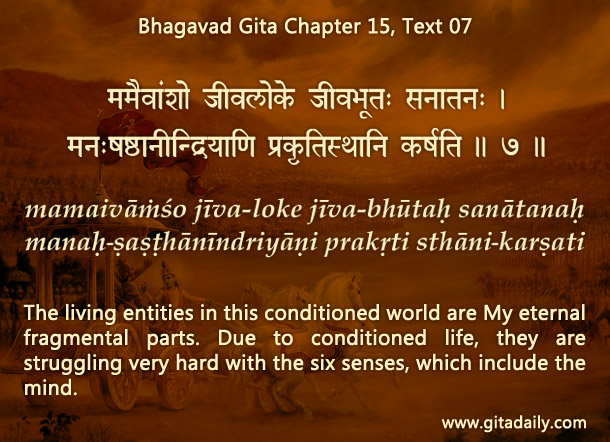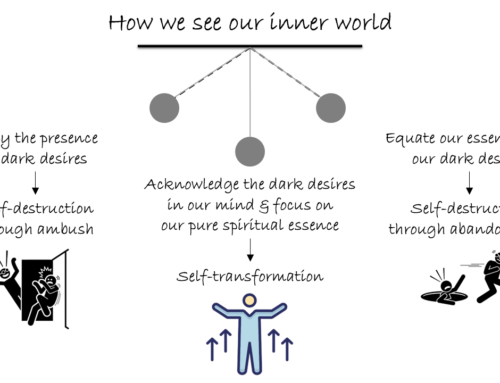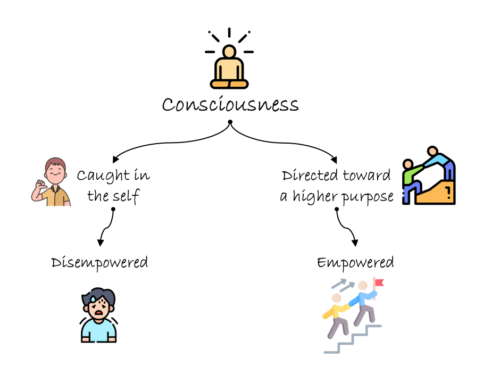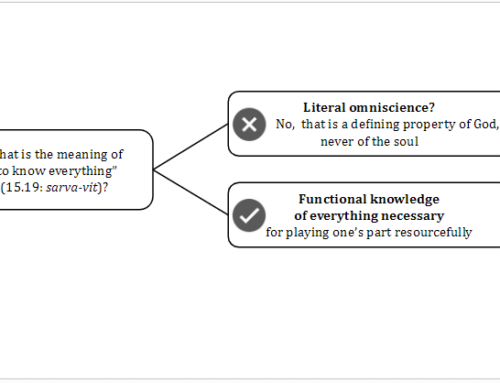Even if we have to live with our mind we don’t have to live for our mind – We are stuck with our mind, but we don’t have to be struck by our mind.
Wherever we go, our mind goes with us because it is inside us. Our mind can be tiresome or troublesome, and we can’t get rid of it. It’s a traveling companion that we are stuck with.
What makes our situation especially vulnerable is that our mind is not a helpful or even a silent traveling companion. It is a noisy and disruptive companion that constantly tries to assume the position of our travel director. And rather than leading us to places better than those we may have wanted to go to, it misleads us into places far worse than what we may have chosen ourselves.
When we let our mind take on the position of being our boss and allow it to misdirect us, that’s when we get struck by our mind. Our competence, character, reputation, relationships, morality, and spirituality all get diminished and damaged by the disruptive and destructive effects of the mind’s misleading.
Given how vulnerable we are and how catastrophic the effects of being misled by our mind can be, the Bhagavad Gita (6.5) exhorts us to elevate ourselves using our mind and not be degraded by being used by our mind.
How can we ensure this positive result? By learning to not live for our mind, even when we have to live with our mind. We need to have something more meaningful and valuable to live for. Once we become devoted to such a higher purpose, the mind’s distractions don’t affect us so much. Just as when we are absorbed in doing some very important work, we don’t let the antics of a child nearby distract us. The more we cultivate such absorption in a higher purpose, the greater is the insulation we get from our mind’s distractions.
Thankfully, the Bhagavad Gita gives us the most meaningful and the most valuable purpose to absorb ourselves in. It explains that we all are parts of the omnibenevolent divinity, Krishna (15.7), and we all have parts in his plan for the benefit of everyone, including us, for he is everyone’s greatest well-wisher (5.29).
When we devote ourselves using whatever God-given abilities, interests, and resources we have to the service of the Lord, that service attitude infuses within us a higher purpose and increasingly a higher taste that immunizes us to any toxic infections coming from our mind.
Summary:
- We are stuck with our mind in the sense that it is our internal and inescapable traveling companion throughout our life’s journey.
- However, we can get struck by our mind when we let it take on the position of our travel director and mislead us into destructive directions.
- To ensure that we don’t get struck by our mind, we need to live for something other than our mind—a higher purpose whose pursuit gives us an absorption that becomes our insulation from our mind’s distractions.
Think it over:
- How do we get struck by our mind?
- Recall a time when absorption in something meaningful insulated you from your mind’s distractions.
- How can Gita wisdom help us in living with our mind but not for our mind?
***
15.07 The living entities in this conditioned world are My eternal fragmental parts. Due to conditioned life, they are struggling very hard with the six senses, which include the mind.





Leave A Comment